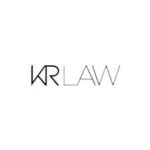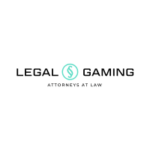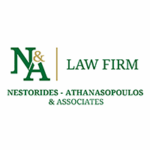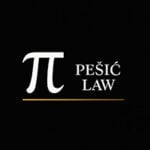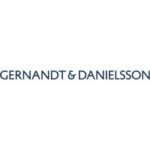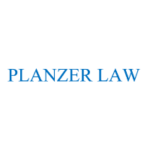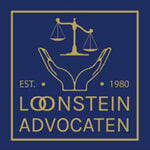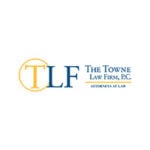-
What is the legal definition of gambling?
‘Games of chance’ involve a player committing a stake of any kind which can be lost to other players or to the organisers of the game or a prize can be gained (Article 2 (1) of the Federal Act of 7 May 1999 regarding games of chance, wagers and protection of the players). Chance must play some role in determining the winner or apportioning the gain. A game of chance must:
- Be a game.
- Involve a stake of any kind.
- Result in a loss or a gain.
- Involve at least a minimal degree of chance in the outcome.
Completely free games are not games of chance under the Gaming Act. The Gaming Act excludes certain games from its scope of application (e.g., sports games and games where the player can only win up to five additional plays (free of charge)). The Gaming Act explicitly states that it does not apply to lotteries.
-
What legislation applies to gambling? Please provide a summary of the legal/regulatory framework.
The regulatory framework applicable to gambling consists of a number of different acts. The most important ones are:
- Federal Act of 7 May 1999 regarding games of chance, wagers and protection of the players (Gaming Act).
- Federal Act of 31 December 1851 regarding lotteries (Lotteries Act).
- Federal Act of 19 April 2002 to rationalise the functioning and the management of the National Lottery (National Lottery Act).
-
Which body/ies regulate gambling?
The (Belgian) Gaming Commission is the most important body regulating gambling. It has, in essence, a threefold competence:
- Advisory competence. On request from Parliament or a respective minister, the Gaming Commission provides advice about legislative or regulatory issues within the scope of the Gaming Act.
- Granting licences. The Gaming Commission is responsible for granting licences for certain games of chance.
- Supervisory The Gaming Commission is responsible for monitoring compliance with the Gaming Act (and its implementing decrees) and controlling the licences that have been granted.
-
Are licences available? If so: a) What is the duration of a licence? b) What types of licences are available? c) Are there different types of licences for B2C and B2B operators? d) Do software suppliers need to be licensed?
The Gaming Act contains a broad prohibition on offering (online and offline) games of chance and bets: only the companies that hold the required licence can commercialise games of chance and bets. The available number of licences is limited and they are granted for a fixed period of time.
The following land-based and online gaming licences are available:
- licence A – a class I gaming establishment (casinos). There are nine available licences and (in September 2025) nine active licences. An A licence is granted for a renewable period of 15 years.
- licence A+ – an online casino. There are nine available licences and (in September 2025) nine active licences. An A+ licence is granted for the same period as an A licence.
- licence B – a class II gaming establishment (gaming arcades). There are 180 available licences and (in September 2025) 175 active licences. The B licence is granted for a renewable period of nine years.
- licence B+ – an online gaming arcade. There are 180 available licences and (in September 2025) 51 active licences. A B+ licence is granted for the same period as an B licence.
- licence C – a class III gaming establishment (bars). The number of licences is not limited and in September 2025 there were 4,076 active licences. A C licence is granted for a renewable period of five years.
- licence D – exercising a professional activity within class I, II or IV gaming establishments. The number of licences is unlimited, and the number of active licences is unknown.
- licence F1 – a class IV gaming establishment (organisers of bets). There are currently 30 available licences and (in September 2025) 30 active licences. The F1 licence is granted for a renewable period of nine years.
- licence F1+ – offering online bets. There are currently 30 available licences and (in September 2025) 22 active licences. An F1+ licence is granted for the same period as an F1 licence.
- licence F1P – allows the F1 licence holder to organise bets on horse races (only an F1 licence holder can obtain an F1P licence). An F1P licence is granted for the same period as an F1 licence.
- licence F2 – licence to take on bets on behalf of an F1 licence holder. There are 600 fixed and 60 mobile licences available, and in September 2025 there are 407 active licences for betting shops and 27 for bookmakers. An F2 licence is granted for a renewable period of three years.
An online gambling licence necessitates a mandatory physical presence in Belgian territory: only operators licensed to operate in the real world (holding a principal A, B, or F1 licence) can obtain a licence to offer the same games of chance and betting online (an additional A+, B+, or F1+ online licence).
B2B operators should hold an E licence. The following activities are subject to an E licence requirement: sale, rental, supply, making available, import, export, manufacture, maintenance, reparation of and equipment of games of chance. Also the sale of software for online gambling is subject to the requirement to have an E licence. It is prohibited for a natural or legal person to hold at the same time an A, A+, B, B+, C, D, F1, F1+, F1P and F2, licence and an E licence, either directly or indirectly, or through another natural or legal person.
-
Are any types of gambling products prohibited?
Yes.
It is prohibited to organise wagers on events or activities which are contrary to public order or morality, whose outcome is known, where most of the participants are minors and where the uncertain act has already occurred.
The Gaming Commission can prohibit bets in two specific cases: where the fairness of the event on which a bet is organised cannot be guaranteed, and where it considers that specific bets are susceptible to fraud.
-
What is the headline application procedure? Please include any eligibility and other application requirements, including approximate application costs and any need to establish a local presence.
The application requirements vary for each type of licence. All applications should be filed with the Gaming Commission.
Only EU citizens and EU-registered companies can apply for an A (+), B(+), E or F1(+) licence. Two Royal decrees (both of 21 June 2011) regulate the application for an online licence (licences A+, B+ and F1+). In general, a licence applicant must
- submit fiscal and financial information;
- demonstrate that there is no criminal history; and
- satisfy certain solvency criteria
A legal person must include additional information about its directors and shareholders, together with supporting evidence. An application for an online licence must specify where the website will be administered (meaning that the Gaming Commission must know where the servers will be located and hosted). The website must be hosted in a data centre in Belgium.
The Gaming Commission must decide on applications for A, A+, B, B+ F1 , F1+ and E licences within the six months following receipt of the application or submission of a complete application file.
There are no fees associated with the submission of a licence application. But guarantee deposits need to be paid for most licences. The guarantee varies from EUR250,000 (for an A or an A+ licence) to EUR75,000 (for a B, B+ and F1+ licence), EUR25,000 (for an E licence) or EUR10,000 (for an F1 licence).
-
Do individuals within the business need to be personally licensed or authorised? If so, please provide headline requirements.
There is no requirement for individuals within business to be personally licensed. But during the license application procedure the Gaming Commission verifies whether the members of the management of the license applicant do not have a criminal record. All changes in the management must also be notified to the Gaming Commission.
-
Is advertising of gambling permitted and, if permitted, how is it regulated?
The Gaming Act broadly defines “advertising” as “any form of communication intended, directly or indirectly, to promote or encourage games of chance, regardless of the location, communication methods used, or techniques employed. The display of a brand name or logo, or both, is also considered advertising.” Similarly, the Royal Decree of 27 February 2023 which establishes the advertising conditions for games of chance, offers a comparable definition.
Advertising land-based and online games of chance and bets is prohibited if it is known that those games of chance or gaming establishments are not authorised (not licensed) under the Gaming Act. Violating this prohibition may result in criminal sanctions.
For licensed games of chance, both land-based and online, the Gaming Act and Royal Decree of 27 February 2023 state that all advertising is generally prohibited, except when expressly authorised. All other forms of advertising for licensed games of chance are not allowed. Incidental advertising in connection with the coverage of sports competitions and events is authorized. Sports sponsorship is authorized for non-professional sports associations and, until 1 January 2028, for professional sports associations.
As far as sports sponsorship is concerned, for the period from 1 January 2025 to 31 December 2027, only the name and/or logo of the gambling operator may be displayed, with a maximum size of 75 cm², and not on the front of the sportswear of adult players of (non-)professional sports associations.
License holders may broadcast sports sponsorship messages using their brand name and/or for international and European sports competitions but not Belgian sports competitions. Any broadcast of sports sponsorship messages must adhere to the following conditions: (i) the duration of each sports sponsorship message may not exceed 5 seconds; (ii) no more than two sports sponsorship messages may be broadcast per hour; (iii) the sports sponsorship message must air during the fifteen-minute period before and the fifteen-minute period after the live coverage of the sports competition, specifically from the actual start to the actual end of the event.
Online licence holders can only advertise on their own website and their own social media accounts, provided that: (i) no interaction is permitted in connection with this advertising; (ii) no compensation is offered to a third party for advertising; and (iii) the duration of any advertising using moving images does not exceed 5 seconds.
Furthermore, a number of general restrictions have been laid down for all explicitly authorised forms of advertising for games of chance. Advertising may not be directed specifically at socially vulnerable groups. All “personalised” advertising is prohibited. Advertising can no longer involve physical persons or fictitious characters. All forms of advertising must contain an indication of the minimum age for participation and must contain a preventive message.
-
Are marketing affiliates permitted? If so, are they licensed or regulated?
The Gaming Act does not specifically regulate affiliates but certain activities of affiliates, such as marketing, are regulated by the Gaming Act. Pursuant to Article 4, §2 of the Gaming Act, for example, it is prohibited for anyone (including affiliates) to facilitate the operation of unlicensed games of chance, to advertise for unlicensed games of chance or to recruit players for unlicensed games of chance.
The Gaming Commission has issued guidelines concerning advertising practices for licensed operators. Within these guidelines, it is stated that “the system of affiliate websites advertising the licensed websites is allowed,” provided that specific conditions are met.
-
What are the penalties for offering, facilitating or marketing unlawful gambling, and can the gambler be penalised for participating in unlawful gambling?
The Gaming Act contains a very broad prohibition clause. Not only is it prohibited to “operate in any place, in any form and in any direct or indirect manner, games of chance or gambling establishments without a licence” (Article 4, §1 of the Gaming Act), but it is also prohibited to participate in illegal (ie, offered without a licence) games of chance, facilitate the operation of illegal games of chance or gaming establishments, advertise illegal games of chance or gaming establishments, or recruit for illegal games of chance or gaming establishments (Article 4, §2 of the Gaming Act). It is prohibited to participate in a game of chance if the player can have a direct impact on the result (Article 4, §3 of the Gaming Act). It is strictly prohibited for anyone to use another person’s personal data to access a gambling establishment or participate in a game of chance and it is also forbidden to provide someone else with personal data, knowing that it will be used to access a gambling establishment or participate in a game of chance (Article 4, §4 of the Gaming Act). All these acts can result in criminal sanctions.
The operation of illegal games of chance or gaming establishments can be sanctioned with a fine of EUR208–960,000. Persons guilty of breaching a prohibition on participating in, and facilitating the operation of, illegal games of chance or gaming establishments, or advertising or recruiting for illegal games of chance or gaming establishments, are liable to a fine of EUR208–576,000.
A violation of the prohibition on any person participating in any game of chance in which, by its nature, they could have a direct influence on the result can give rise to a fine of EUR208–960,000.
In particular cases (recidivism or if the infringement involves a person younger than 21 years), the sanctions can be doubled.
The Gaming Act also contains an administrative sanctioning mechanism. In certain cases, the Gaming Commission can impose an administrative fine corresponding to the minimum and maximum amounts of the criminal fine. The administrative fine must be imposed by reasoned decision. The notification of that decision prevents a criminal prosecution for the same facts.
-
Briefly detail key requirements for licensees.
The key licensing requirements can be found in our reply to question 6.
-
Briefly detail key anti-money laundering requirements.
All gambling operators are subject to due diligence obligations, which consist of the identification and verification of players, and financial beneficiaries; monitoring suspicious transactions; and other vigilance obligations in co-operation with the Belgian Financial Intelligence Processing Unit, the police and the Public Prosecutor’s Office.
The gambling operator is required to identify clients who either place bets or withdraw winnings of EUR2,000 or more. The anti-money laundering legislation also imposes limits on the use of cash money; no gift or payment in cash can be made or accepted when the amount exceeds EUR3,000 (or the equivalent amount in another currency). Holders of a C licence are exempted from the application of the AML Law.
-
Briefly detail key responsible gambling (or safer gambling) requirements.
Some of the responsible gambling requirements include the following measures:
- Individuals under 21 years of age are prohibited from participating in games of chance and betting. This age restriction applies to both offline and online games.
- The Excluded Persons Information System (EPIS) is a database that contains the names of individuals who have either voluntarily self-excluded or have been subject to imposed exclusions. (Online) operators are required to consult the EPIS database before allowing customers to play.
- Online licence holders are required to set deposit limits. The standard weekly deposit limit is EUR 200 per website. This limit can be reduced immediately or increased, but only under strict conditions.
- Online licence holders must offer the possibility of temporary self-exclusion, and they must inform players by means of notifications and pop-up windows on the potential risks of participating in online games of chance.
- Online licence holders must also refuse any intervention by electronic payment systems authorising the use of a credit card by the player as a transfer method.
It is expressly prohibited to offer bonuses, online and offline, except in land-based casinos, where it is still allowed to offer bonuses up to EUR 400 per two month and per player.
-
Briefly detail shareholder reporting and approval threshold(s).
The Gaming Commission must, at all times, and scrupulously, be notified of any changes to the shareholding structure of licence holder and it must be enabled to verify the transparency of the exploitation. Whereas the Gaming Act only refers to the identity of the “shareholders”, it is the Gaming Commission’s practice to extend this to all persons or entities who directly or indirectly exercise control over the company (including the ultimate beneficial owner). Also changes to the management must be notified to the Gaming Commission.
-
Briefly detail the regulator’s enforcement powers, including sanctions.
The Gaming Commission can issue warnings, suspend or revoke a licence, or impose a temporary or final prohibition on offering one or more games of chance. For certain (serious) infringements and under certain conditions, the Gaming Commission can impose administrative sanctions. The administrative fine corresponds to the minimum and maximum amounts of the criminal fine. The administrative fine must be imposed by reasoned decision. The notification of that decision prevents a criminal prosecution for the same facts. The Gaming Act contains a specific procedure to challenge an administrative fine legally.
-
What is the tax rate?
Land-based gambling
Betting and gaming tax is generally levied on the gross amount of the stakes. Certain games of chance are explicitly excluded from betting and gaming tax, such as permitted lotteries. There are several specific tax regimes which are summarised below.
Bets.
In all three Regions, bets on horse races, dog races and sports events which take place in Belgium or in a European Economic Area (EEA) member state are taxed at 15% on the actual realised gross margin.
Bets on horse races, dog races and sporting events taking place outside the EEA are taxed at 15% on the gross amount of the stakes involved.
Casino games.
In the Flemish Region, casino games are taxed as follows :
- Casino games are taxed on the gross amount of the stakes. Casino games are taxes at 33% on the gross gaming revenue up to EUR865,000, but at 44% on the part of the gross gaming revenue in excess of EUR865,000.
- Machines: a percentage (going from 20 to 50) per bracket of gross revenue (for example, 20% on the bracket up to EUR1.20 million).
In the Walloon Region, casino games are taxed as follows:
- Roulette without zero: at 2.75% on the gambler’s winnings.
- Baccara chemin de fer : at 4.80% on the bank’s winnings.
- Other casino games: at 33% on the gross gaming revenue up to EUR1.36 million and 44% on the part of the gross gaming revenue in excess of EUR1.36 million.
- Machines: a percentage (going from 20 to 50) per bracket of gross revenue (for example, 20% on the bracket up to EUR1.20 million).
In the Brussels-Capital Region, casino games are taxed as follows:
- Roulette without zero: at 2.75% on the gambler’s winnings.
- Other casino games: at 33% on the gross gaming revenue, but 44% on the portion of the gross gaming revenue in excess of EUR1.36 million.
- Machines: a percentage (going from 20 to 50) per bracket of gross revenue (for example, 20% on the bracket up to EUR1.20 million).
Gaming Machines
Except machines in land-based casinos, gaming machines are subject to a gambling tax in the form of a fixed amount per machine per year. This also varies depending on region, the type of gaming machine and the establishment in which it is installed.
Online gambling
The three Regions (that is, the Walloon, Flemish and Brussels-Capital Regions) have the competence to determine the applicable tax rates for online games of chance and bets. Currently, the tax rate is set at 11% of the actual gross margin realised with the game of wager that is the gross amount of stakes minus the distributed profits.
VAT
Offline and online games of chance, bets and lotteries are VAT-exempt subject to conditions and limitations specified in a Royal decree.
-
Are there any proposals for changing gambling laws and regulations in the next 12-24 months? If so, please provide an overview of the proposed changes and likely timing.
The Flemish Parliament is contemplating changing the tax rate applicable to online gambling activities. However, there are still no details about the possible new taxation rate.
-
What key regulatory developments are proposed or on the horizon in the next 12-24 months?
In its 2025 coalition agreement, the Belgian federal government has announced several forthcoming initiatives concerning the gambling sector. It has indicated to establish a transparent and stable regulatory framework that provides legal certainty for both gambling and betting activities. Additionally, the government intends to modernize the Gambling Act to reflect the emergence of new forms of gambling.
As part of this reform, the Gaming Commission will be restructured, with the Minister of Economy serving as the government’s sole representative. The Minister will also take steps to intensify the fight against illegal gambling operations, both online and offline. These measures aim to create a level playing field within the industry and to enhance consumer protection.
Moreover, local authorities will be granted a stronger role in the licensing process for gambling establishments in their jurisdictions, including the ability to define specific zones where such venues may be concentrated.
-
Do you foresee any imminent risks to the growth of the gambling market in your jurisdiction?
The Belgian gaming market remains relatively stable. The growth of licensed operators is limited, as both land-based and online licenses are capped by law (numerus clausus). In a March 2022 opinion, the Gaming Commission highlighted that the online gaming market has experienced “significant” growth. It noted that in 2020, the gross gaming revenue (GGR) from online games of chance surpassed that of land-based gaming for the first time since the regulation of online games began in 2011. In its 2023 annual report, the Gaming Commission further reported an 18.03% increase in GGR for the online market compared to 2022, while the offline market grew by 15.18% during the same period.
-
If a gambling start-up was looking for a jurisdiction in which to commence its activities, why would it choose yours?
Most operators like the fact that the Belgian market is a stable and mature market, relatively well regulated and with an attractive tax rate for online games of chance and bets (11% on GGR).
Belgium: Gambling Law
This country-specific Q&A provides an overview of Gambling laws and regulations applicable in Belgium.
-
What is the legal definition of gambling?
-
What legislation applies to gambling? Please provide a summary of the legal/regulatory framework.
-
Which body/ies regulate gambling?
-
Are licences available? If so: a) What is the duration of a licence? b) What types of licences are available? c) Are there different types of licences for B2C and B2B operators? d) Do software suppliers need to be licensed?
-
Are any types of gambling products prohibited?
-
What is the headline application procedure? Please include any eligibility and other application requirements, including approximate application costs and any need to establish a local presence.
-
Do individuals within the business need to be personally licensed or authorised? If so, please provide headline requirements.
-
Is advertising of gambling permitted and, if permitted, how is it regulated?
-
Are marketing affiliates permitted? If so, are they licensed or regulated?
-
What are the penalties for offering, facilitating or marketing unlawful gambling, and can the gambler be penalised for participating in unlawful gambling?
-
Briefly detail key requirements for licensees.
-
Briefly detail key anti-money laundering requirements.
-
Briefly detail key responsible gambling (or safer gambling) requirements.
-
Briefly detail shareholder reporting and approval threshold(s).
-
Briefly detail the regulator’s enforcement powers, including sanctions.
-
What is the tax rate?
-
Are there any proposals for changing gambling laws and regulations in the next 12-24 months? If so, please provide an overview of the proposed changes and likely timing.
-
What key regulatory developments are proposed or on the horizon in the next 12-24 months?
-
Do you foresee any imminent risks to the growth of the gambling market in your jurisdiction?
-
If a gambling start-up was looking for a jurisdiction in which to commence its activities, why would it choose yours?



